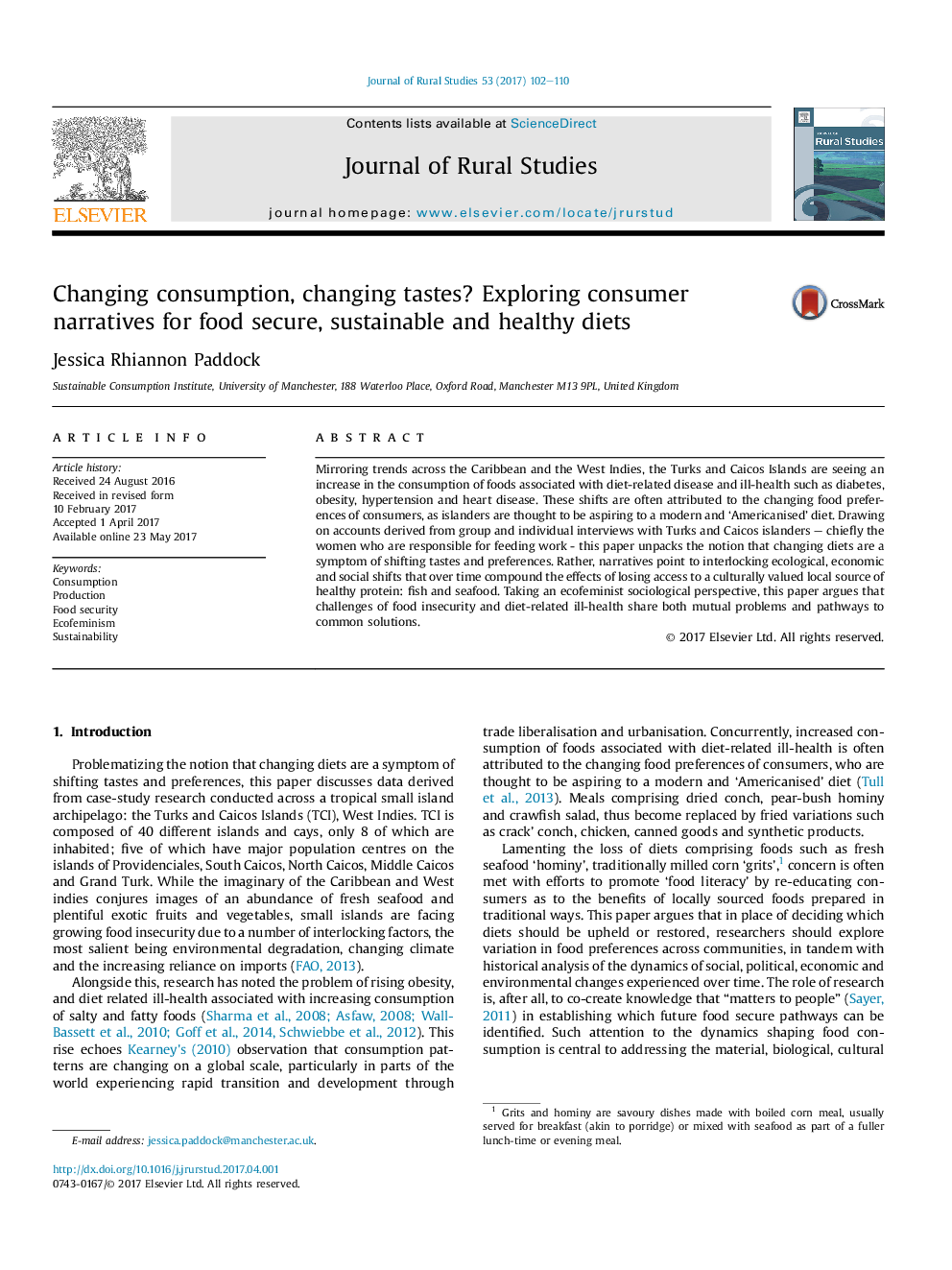| Article ID | Journal | Published Year | Pages | File Type |
|---|---|---|---|---|
| 6459987 | Journal of Rural Studies | 2017 | 9 Pages |
â¢The Turks and Caicos Islands are seeing an increase in the consumption of foods associated with diet-related disease and ill-health.â¢This paper analyses the interaction of institutional, ecological and cultural dynamics that affect food consumption.â¢Consumer narratives point to a number of interlocking shifts that result in loss of access to fish, not changing preferences.
Mirroring trends across the Caribbean and the West Indies, the Turks and Caicos Islands are seeing an increase in the consumption of foods associated with diet-related disease and ill-health such as diabetes, obesity, hypertension and heart disease. These shifts are often attributed to the changing food preferences of consumers, as islanders are thought to be aspiring to a modern and 'Americanised' diet. Drawing on accounts derived from group and individual interviews with Turks and Caicos islanders - chiefly the women who are responsible for feeding work - this paper unpacks the notion that changing diets are a symptom of shifting tastes and preferences. Rather, narratives point to interlocking ecological, economic and social shifts that over time compound the effects of losing access to a culturally valued local source of healthy protein: fish and seafood. Taking an ecofeminist sociological perspective, this paper argues that challenges of food insecurity and diet-related ill-health share both mutual problems and pathways to common solutions.
